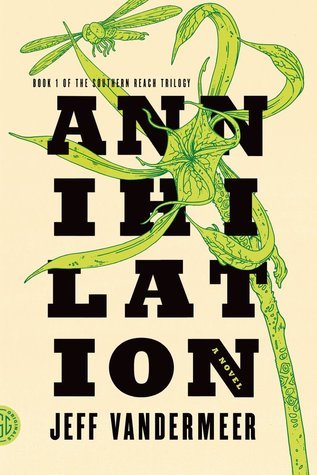What do you think?
Rate this book


195 pages, Paperback
First published February 4, 2014



“That’s how the madness of the world tries to colonize you: from the outside in, forcing you to live in its reality.”It’s one of those strange books that I enjoyed and yet found strangely off-putting and uncomfortable, like one of those disturbing early morning dreams just before waking where everything is a bit distorted and all you remember in the morning is that fuzzy unsettled residue of it that lurks in the back recesses of your brain for days after.
“The beauty of it cannot be understood, either, and when you see beauty in desolation it changes something inside you. Desolation tries to colonize you.”
“I am convinced now that I and the rest of the expedition were given access to these records for the simple reason that, for certain kinds of classified information, it did not matter what we knew or didn’t know. There was only one logical conclusion: Experience told our superiors that few if any of us would be coming back.”
“The tower, which was not supposed to be there, plunges into the earth in a place just before the black pine forest begins to give way to swamp and then the reeds and wind-gnarled trees of the marsh flats. Beyond the marsh flats and the natural canals lies the ocean and, a little farther down the coast, a derelict lighthouse. All of this part of the country had been abandoned for decades, for reasons that are not easy to relate.”
“My sole gift or talent, I believe now, was that places could impress themselves upon me, and I could become a part of them with ease.”
“I had gotten sidetracked, like I always did, because I melted into my surroundings, could not remain separate from, apart from, objectivity a foreign land to me.”
“We all live in a kind of continuous dream,” I told him. “When we wake, it is because something, some event, some pinprick even, disturbs the edges of what we’ve taken as reality.”
That finding at the bottom of the Tower and the Crawler itself, I hope, are addressed more in the sequels. Otherwise there will be one very unhappy Nataliya in the world.
A swimming pool. A rocky bay. An empty lot. A tower. A lighthouse. These things are real and not real. They exist and they do not exist.




By the time we were ready to cross the border, we knew everything... and we knew nothing